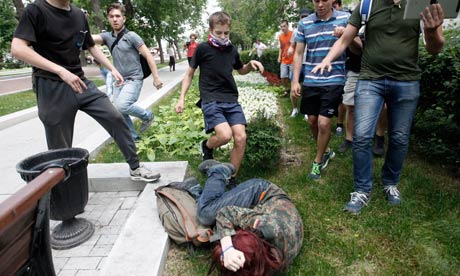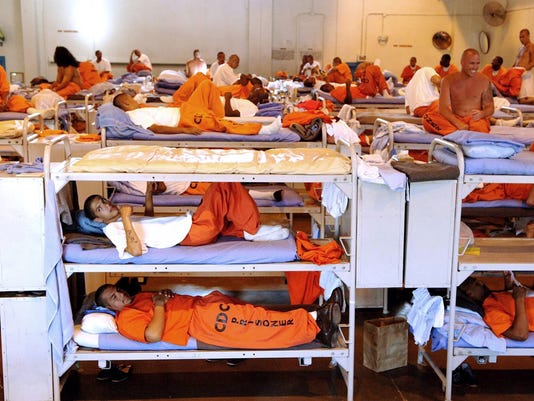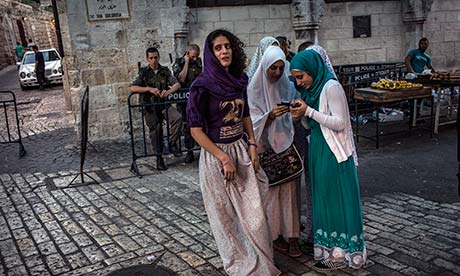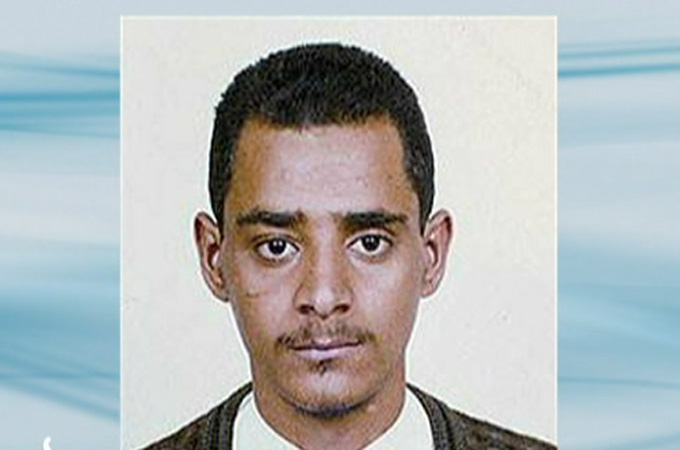 After a US federal judge ruled that CACI International, a US corporation, was not culpable for torture allegations at Abu Ghraib prison in Iraq, lawyers for the defense contractor have filed a suit against the former detainees seeking legal expenses.
After a US federal judge ruled that CACI International, a US corporation, was not culpable for torture allegations at Abu Ghraib prison in Iraq, lawyers for the defense contractor have filed a suit against the former detainees seeking legal expenses.
A group of 256 Iraqis originally sued CACI International in 2004 accusing the company of committing war crimes, crimes against humanity, sexual assault, participating in torture and a variety of other allegations at Abu Ghraib prison.
Abu Ghraib contractor, accused of human rights abuses, sues former prisoners
Gay Russian teens communicate in secret to avoid law on 'propaganda'
 Only one person knew that Svetlana was gay when she wrote to Deti-404, a Russian support group for lesbian teenagers. In her letter, the 16-year-old described a life of hiding her sexuality in a small town in central Russia where a man had been killed for being a homosexual. "I am scared that they will find out about me and lynch me. Sometimes I want to cry out: 'Accept me for who I am! Or at least be tolerant of me'," she wrote.
Only one person knew that Svetlana was gay when she wrote to Deti-404, a Russian support group for lesbian teenagers. In her letter, the 16-year-old described a life of hiding her sexuality in a small town in central Russia where a man had been killed for being a homosexual. "I am scared that they will find out about me and lynch me. Sometimes I want to cry out: 'Accept me for who I am! Or at least be tolerant of me'," she wrote.
Deti-404, which takes its name from the error page that appears when a website does not exist, was set up by Lena Klimova, 25, after she wrote an article about the plight of LGBT (lesbian, gay, bisexual and transgender) teenagers.
Supreme Court: California must release nearly 10,000 prisoners
 A divided Supreme Court ruled Friday that California must proceed with the release of nearly 10,000 prisoners from its overcrowded prison system.
A divided Supreme Court ruled Friday that California must proceed with the release of nearly 10,000 prisoners from its overcrowded prison system.
In a ruling by Associate Justice Anthony Kennedy, the court's lone Californian, the justices refused to grant the state a reprieve based on progress on prison overcrowding. The high court had ruled in May 2011 that conditions in the state's prisons violated the Eighth Amendment's ban on cruel and unusual punishment.
Obama Admin. Deported More Than 13,000 Unaccompanied Mexican Minors in 2012
 On Tuesday, the Mexican Ministry of Foreign Affairs (SRE) released a report confirming that 13,454 unaccompanied Mexican minors under the age of 18 were deported from the U.S. in 2012, according to Animal Politico.
On Tuesday, the Mexican Ministry of Foreign Affairs (SRE) released a report confirming that 13,454 unaccompanied Mexican minors under the age of 18 were deported from the U.S. in 2012, according to Animal Politico.
Last year, the U.S. Border Patrol apprehended 6,548 accompanied and 24,481 unaccompanied children, a total that includes Mexican minors. The rate of border-crossing minors tripled since 2008 to the point that in 2012, unaccompanied minors comprised 79 percent of all juvenile border crossers.
The New Jerusalem: 'I will not give you my home!'
 Around 1,000 Jewish settlers now live among 31,000 Palestinians in the Muslim Quarter of the Old City, taking over homes that have been inhabited by Muslim families for decades or even centuries, and flying Israeli flags from the walls and rooftops of their properties.
Around 1,000 Jewish settlers now live among 31,000 Palestinians in the Muslim Quarter of the Old City, taking over homes that have been inhabited by Muslim families for decades or even centuries, and flying Israeli flags from the walls and rooftops of their properties.
They are the frontline fighters in a broader battle – backed by the Israeli government, city authorities and security services – to ensure Jewish control of Jerusalem and to drive its Palestinian population down to a minimum.
U.S. allowed Italian kidnap prosecution to shield higher-ups, ex-CIA officer says
 A former CIA officer has broken the U.S. silence around the 2003 abduction of a radical Islamist cleric in Italy, charging that the agency inflated the threat the preacher posed and that the United States then allowed Italy to prosecute her and other Americans to shield President George W. Bush and other U.S. officials from responsibility for approving the operation.
A former CIA officer has broken the U.S. silence around the 2003 abduction of a radical Islamist cleric in Italy, charging that the agency inflated the threat the preacher posed and that the United States then allowed Italy to prosecute her and other Americans to shield President George W. Bush and other U.S. officials from responsibility for approving the operation.
Confirming for the first time that she worked undercover for the CIA in Milan when the operation took place, Sabrina De Sousa provided new details about the “extraordinary rendition” that led to the only criminal prosecution stemming from the secret Bush administration rendition and detention program launched after the Sept. 11, 2001, attacks.
Guantanamo criticized over inmate suicide
 A report by the US military into the suicide of a Guantanamo detainee last year has criticised the facility's guards and medical staff for not following correct procedure.
A report by the US military into the suicide of a Guantanamo detainee last year has criticised the facility's guards and medical staff for not following correct procedure.
Al Jazeera has obtained a copy of the report into the suicide of Adnan Latif, a 31-year-old Yemeni man who overdosed on anti-psychotic medication last September.
Latif was pronounced dead on September 8, 2012, the same day that his mother died, according to the report.
More Articles...
Page 40 of 199

 Human Rights Glance
Human Rights Glance






























